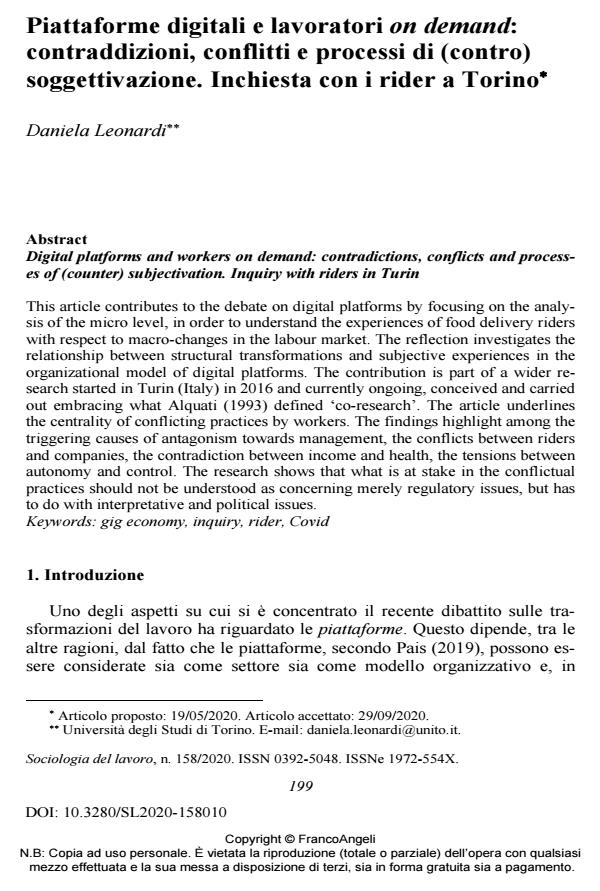Digital platforms and workers on demand: contradictions, conflicts and processes of (counter) subjectivation. Inquiry with riders in Turin
Journal title SOCIOLOGIA DEL LAVORO
Author/s Daniela Leonardi
Publishing Year 2020 Issue 2020/158
Language Italian Pages 23 P. 199-221 File size 355 KB
DOI 10.3280/SL2020-158010
DOI is like a bar code for intellectual property: to have more infomation
click here
Below, you can see the article first page
If you want to buy this article in PDF format, you can do it, following the instructions to buy download credits

FrancoAngeli is member of Publishers International Linking Association, Inc (PILA), a not-for-profit association which run the CrossRef service enabling links to and from online scholarly content.
This article contributes to the debate on digital platforms by focusing on the anal-ysis of the micro level, in order to understand the experiences of food delivery rid-ers with respect to macro-changes in the labour market. The reflection investigates the relationship between structural transformations and subjective experiences in the organizational model of digital platforms. The contribution is part of a wider research started in Turin (Italy) in 2016 and currently ongoing, conceived and car-ried out embracing what Alquati (1993) defined ‘co-research’. The article under-lines the centrality of conflicting practices by workers. The findings highlight among the triggering causes of antagonism towards management, the conflicts be-tween riders and companies, the contradiction between income and health, the tensions between autonomy and control. The research shows that what is at stake in the conflictual practices should not be understood as concerning merely regula-tory issues, but has to do with interpretative and political issues.
Keywords: Gig economy, inquiry, rider, Covid
- The employee paradigm towards proof of work via digital platforms: The situation of Italian platform workers Giacomo Pisani, in Oñati Socio-Legal Series /2023 pp.1903
DOI: 10.35295/osls.iisl.1768
Daniela Leonardi, Piattaforme digitali e lavoratori on demand: contraddizioni, conflitti e processi di (contro) soggettivazione. Inchiesta con i rider a Torino in "SOCIOLOGIA DEL LAVORO " 158/2020, pp 199-221, DOI: 10.3280/SL2020-158010